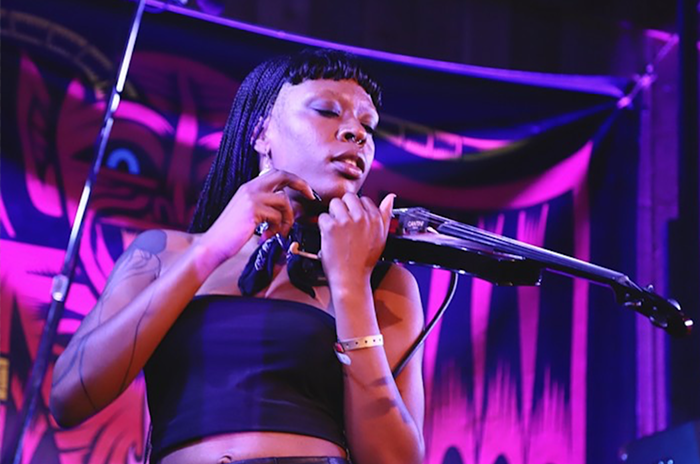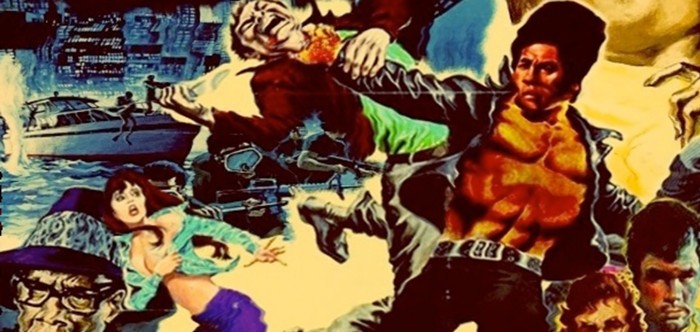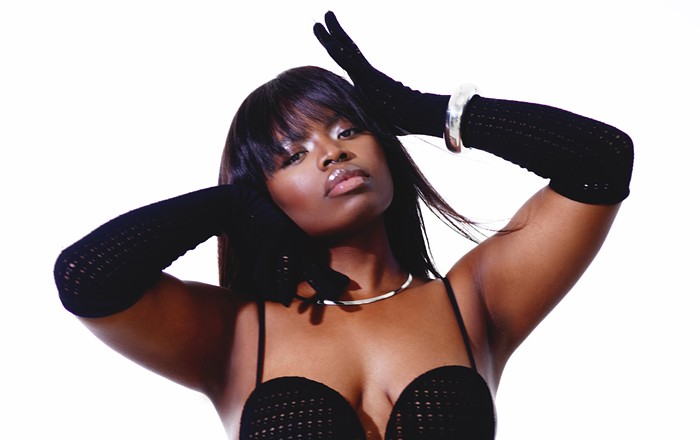Though Okkyung Lee calls New York home, the cellist and composer is rarely home these days. This year alone, she’s toured Australia, played festivals in Russia and Norway, and spent time in Stuttgart for a residency at the Akademie Schloss Solitude. This week she’ll join brusque doom rockers Swans on their final West Coast tour, serving as their opening act and sitting in with the band each night.
“It is physically demanding and can be emotionally draining, for sure,” Lee says, via email, of her constant movement around the world. “That’s why I don’t do tours like this where I have to travel every day. I usually try to stay put for a couple of days in the same spot.”
The South Korean artist settles in that fertile tributary being fed by experimental music, contemporary classical, and jazz. There’s a fresh, mirthful quality to her work, even at its darkest, which is fueled, in part, by her relative newness to many of the modes she plays in.
As a student in Seoul, her studies primarily revolved around the classical canon. It wasn’t until she left for college in Boston in 1993 that she was introduced to the work of John Coltrane and Ornette Coleman. Seven years later, living in New York City, she quickly fell in with the avant garde scene that centered on the now-defunct club Tonic. Inspired, she started playing with much more force and physicality, letting her instrument whimper and scrape and needle or unleash furious torrents of sound.
Since then, Lee’s been on a seemingly nonstop physical and creative journey. Sometimes that means adding texture and beauty to a recording session for neo-folk singer/songwriter Beth Orton, or adding smears of color and drone to improvised collaborations with electronic artist Ikue Mori or guitar antagonizer Bill Orcutt. Along the way, she’s also released some fine solo records, including 2013’s Ghil, a collection of soaring and unsettling improvisations recorded in various locales around Norway.
Lee possesses a curiosity and open-mindedness that allows her to move fluidly among so many cultures, and to work capably with the various musicians that she shares studio time and stages with.
“If I hear someone play and it tickles my fancy,” she says, “I’ll cook up a plan so we can do something together. There has to be some kind of clues to tell me that this could be challenging and interesting and even good. I mean, I will probably say no if a total stranger asks me to play with him/her. But then, maybe I’ll say yes?”
Just don’t look for Lee to slow down anytime soon. After her run with Swans, she’s heading back to Germany to finish out her residency, followed by a week-long residency at the Stone, a non-profit performance space in New York overseen by the legendary John Zorn, which will see her playing solo and in collaboration with percussionists Chris Corsano and Ches Smith, among other permutations. But perhaps her most surprising admission about her immediate future?
“I’m hoping to record this harp quartet I started some time ago,” she writes. “Yes, harp quartet with cello, bass, and drums. I’m ready to make some pretty music, baby!”


















